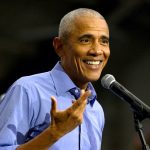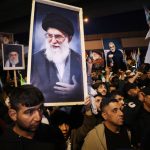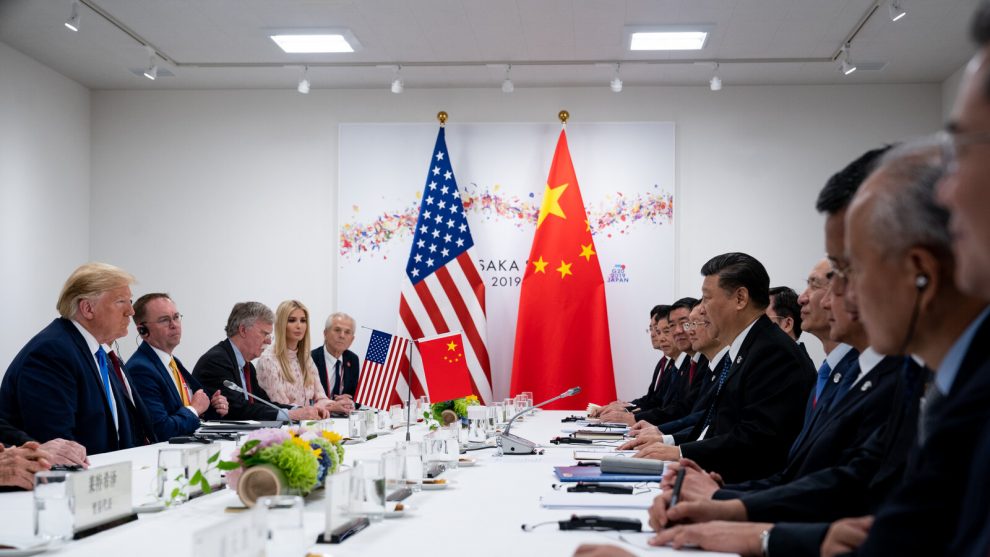The Chinese government announced sanctions against more than two dozen Trump administration officials and their immediate families within minutes of President Joe Biden’s inauguration on Wednesday.
Among those sanctioned was former Secretary of State Mike Pompeo, according to Reuters. Pompeo has been vocal about China’s treatment of Uyghur Muslims, particularly in the last few days.
Reuters reported 28 people in total were sanctioned over what China’s Ministry of Foreign Affairs called “crazy actions that have gravely interfered in China’s internal affairs.”
The country’s foreign ministry expounded on the sanctions on its website.
“Over the past few years, some anti-China politicians in the United States, out of their selfish political interests and prejudice and hatred against China and showing no regard for the interests of the Chinese and American people, have planned, promoted and executed a series of crazy moves which have gravely interfered in China’s internal affairs, undermined China’s interests, offended the Chinese people, and seriously disrupted China-U.S. relations,” the ministry claimed.
“The Chinese government is firmly resolved to defend China’s national sovereignty, security and development interests. China has decided to sanction 28 persons who have seriously violated China’s sovereignty and who have been mainly responsible for such U.S. moves on China-related issues,” the ministry added.
Along with Pompeo, Trump administration officials Peter Navarro, Robert O’Brien, David Stilwell, Matthew Pottinger, Alex Azar, Keith Krach, and Kelly Craft were sanctioned.
Former Trump officials John Bolton and Steve Bannon were also named.
“These individuals and their immediate family members are prohibited from entering the mainland, Hong Kong and Macao of China,” China’s Ministry of Foreign Affairs said. “They and companies and institutions associated with them are also restricted from doing business with China.”
The messaging seems to signal an expected shift in relations between Washington and Beijing.
Such a shift is not unexpected, as Biden is expected to take a softer approach to China.
Trump and his administration had taken a hardline approach to the country with regard to trade, espionage, perceived aggression in the Pacific and intellectual property theft.
The unleashing of the coronavirus pandemic on the globe and the revelation China was forcing as many as 1.5 million Muslim minorities into internment camps ramped up an already tense situation.
Pompeo, a day before the sanctions were announced, had called China’s treatment of Uyghurs and other ethnic and religious minorities “genocide.”
“I have determined that the People’s Republic of China is committing genocide and crimes against humanity in Xinjiang, China, targeting Uyghur Muslims and members of other ethnic and religious minority groups,” Pompeo wrote on Twitter.
I have determined that the People’s Republic of China is committing genocide and crimes against humanity in Xinjiang, China, targeting Uyghur Muslims and members of other ethnic and religious minority groups.
— Secretary Pompeo (@SecPompeo) January 19, 2021
Pompeo also called for China to be held accountable for human rights violations.
These acts are an affront to the Chinese people and to civilized nations everywhere. The People's Republic of China and the CCP must be held to account.
— Secretary Pompeo (@SecPompeo) January 19, 2021
Pompeo did not seem bothered by the news he was barred from entering China — at least not on Twitter, where he has been very active in recent days. On Wednesday, just before the Biden inauguration, the Secretary of State pledged to continue putting the country first in his future endeavors.
It has been an honor to serve as the U.S. Secretary of State. Today, as I step down from this role as our nation’s top diplomat, I am proud of what we achieved — and I promise to never stop fighting for America #AmericaFirst 🇺🇸
— Mike Pompeo (@mikepompeo) January 20, 2021
“It has been an honor to serve as the U.S. Secretary of State. Today, as I step down from this role as our nation’s top diplomat, I am proud of what we achieved — and I promise to never stop fighting for America #AmericaFirst,” he tweeted.
Story cited here.
























